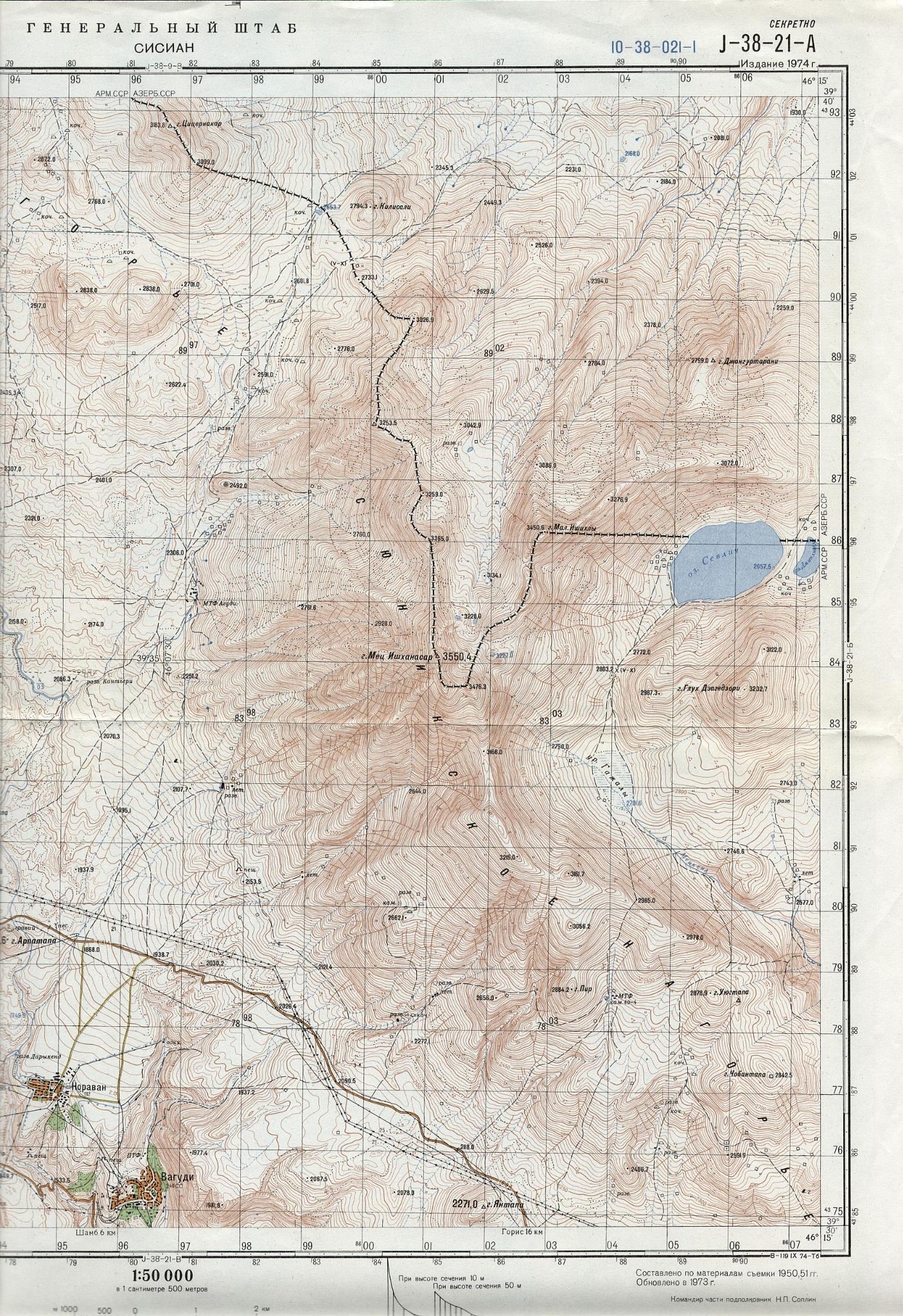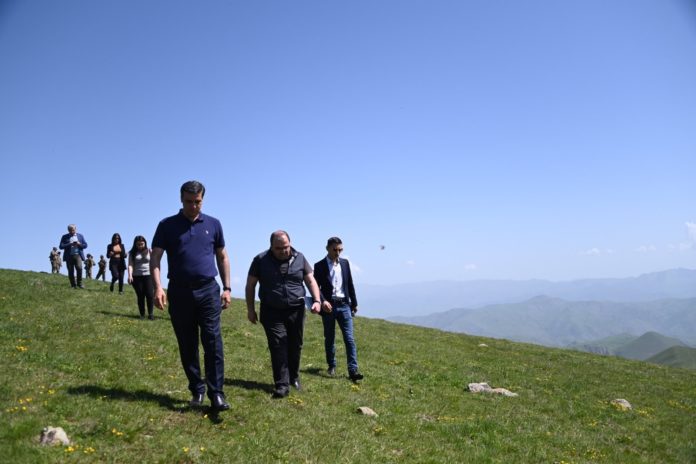GORIS –– Azerbaijani troops have yet to pull out of the area around the remote mountain lake of Sev Lich [“Black Lake”]. The news follows an almost three-day-long standoff on the border between Syunik and the adjacent province of Karvajar which recently fell under Azerbaijani control.
Azerbaijani soldiers reportedly crossed into the internationally recognized territory of Armenia on the morning of May 12 in the vicinity of that lake under the guise of conducting “border adjustments.” Local Armenian forces halted the Azerbaijani intrusion, which reached some 3.5 km (2.1 miles) into Armenian territory, and prevented them from digging entrenchments. Armenian Defense Minister Vagharshak Harutyunyan later announced: “The Azerbaijani forces near the Sev Lake have been surrounded by the Armenian military. All approaches to the area are under our control.”
However, the Azerbaijanis refused to return to their starting line, citing a Soviet-era demarcation purportedly showing the entire area of the lake as falling within their side of the border. Armenian authorities countered that claim with a 1975 topographic map of the area clearly showing the border between the two then-Soviet republics as crossing the northern third of the lake, with the other two thirds firmly inside Armenian territory.

Some claims in Armenian media of Azerbaijani forces entering the adjacent villages of Ishkhanasar and Verishen, a suburb of the provincial capital of Goris, were denied by the Ministry of Defense, and the villagers themselves later said they heard these rumors from the Internet.
One clause of the November 9 ceasefire agreement which ended last autumn’s bloody war in Artsakh was the “return” of 7 buffer territories around Artsakh. At least three of these territories border the Armenian provinces of Syunik and Gegharkunik, while the Soviet-era borders, which had never been designed as international boundaries, had never been properly demarcated. Since the war ended, a delicate process of border demarcation has been taking place under Russian supervision, using Soviet-era maps and GPS coordinators. However, the existence of a variety of differing maps has frustrated these efforts.
With the Karvajar province handover taking place in December, heavy snowfall prevented both Armenian and Azerbaijani border guards from setting up border markers in some of the more remote and mountainous sections of the border. With the spring thaw melting most of the snow in the area in early May, Azerbaijani military engineers rushed to set up at least one position well within the territory of Armenia.










